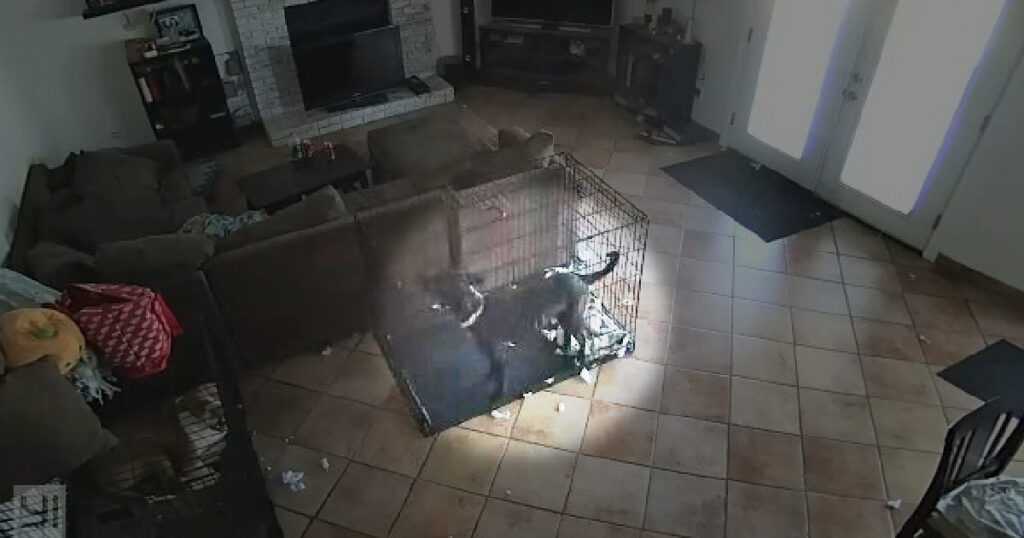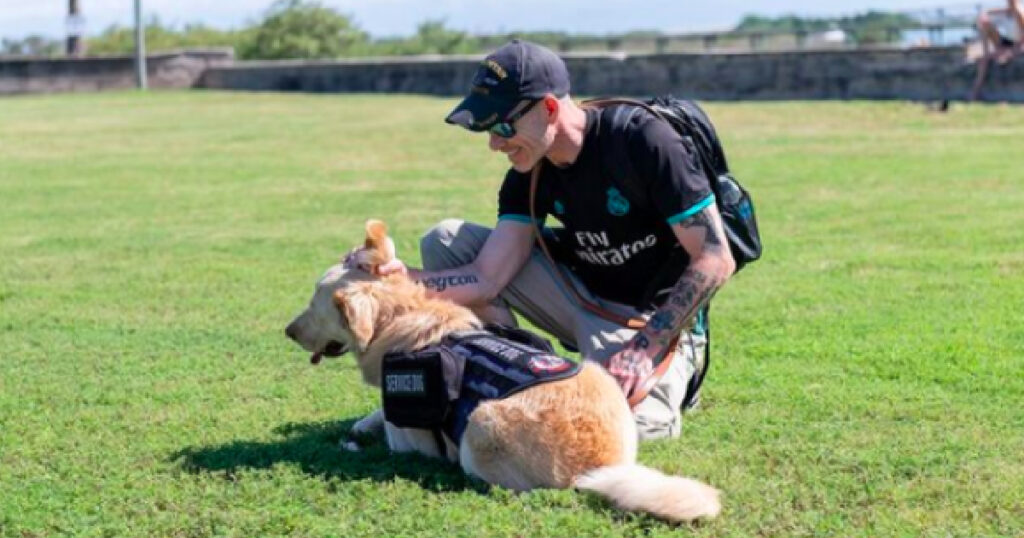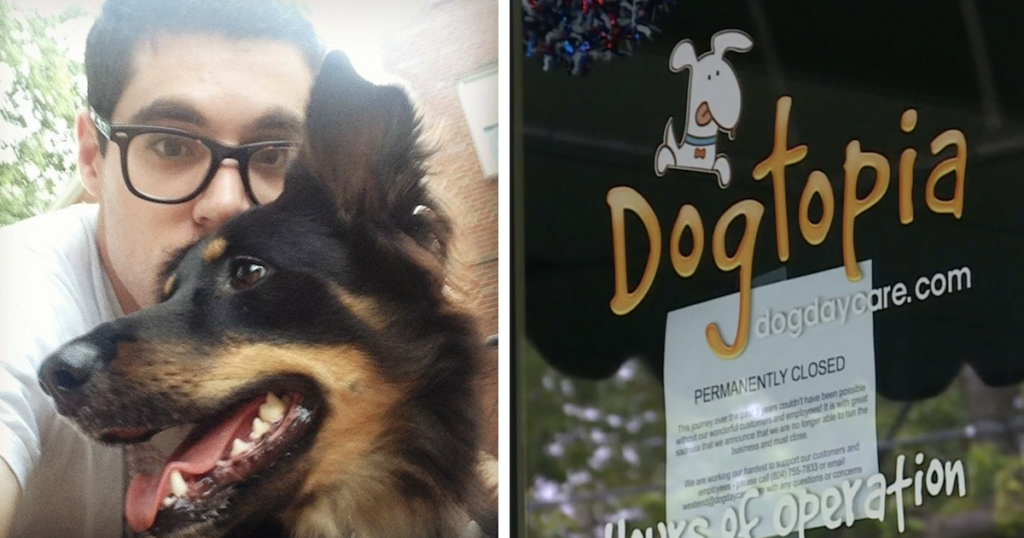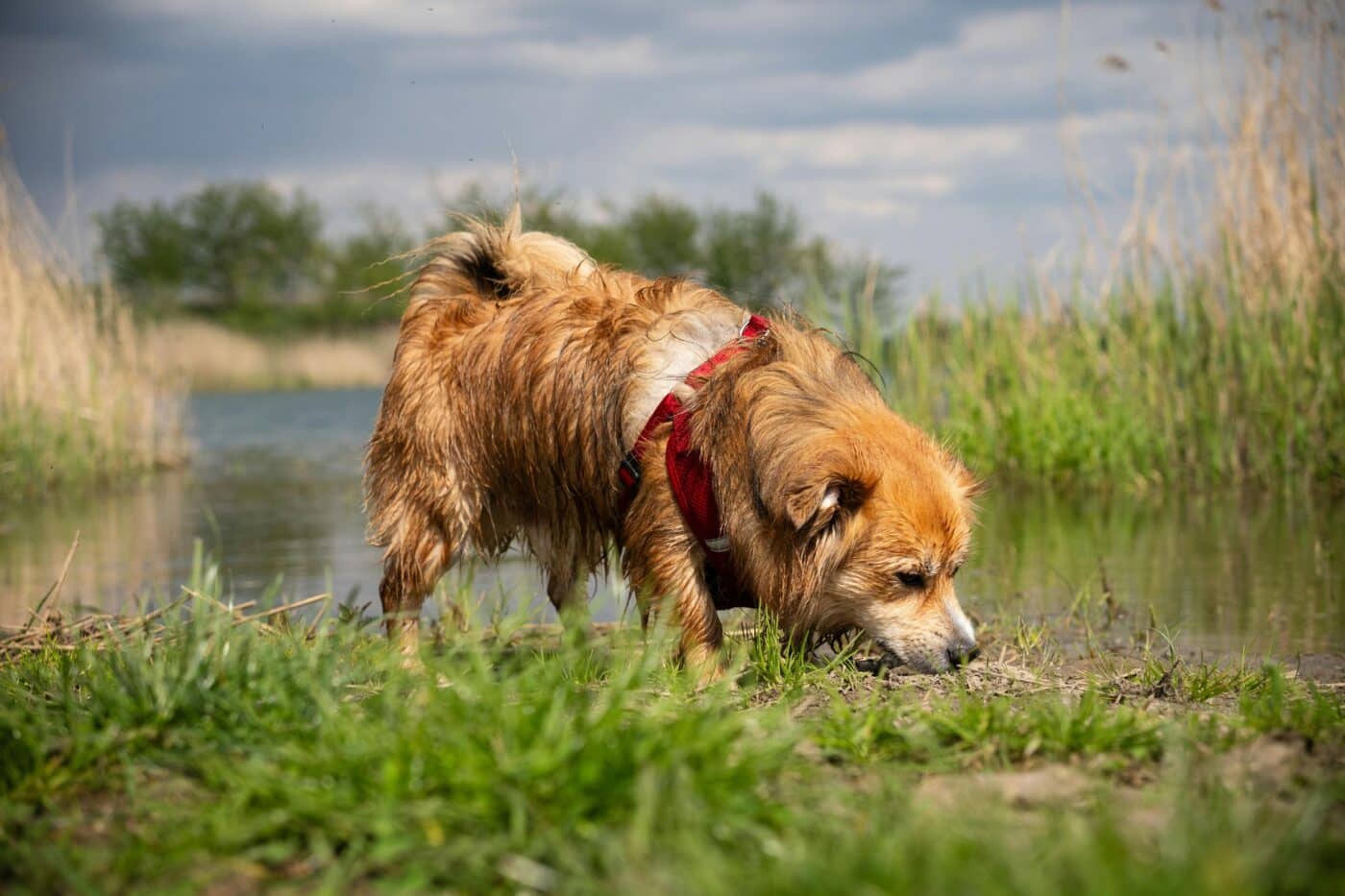 Shutterstock
Shutterstock
Many canine house owners have seen their pets consuming grass and vomiting shortly afterward, which can appear puzzling however is kind of frequent. Whereas it usually raises considerations about potential sickness, there are a number of explanation why canine interact on this behavior, starting from instinctual habits to addressing dietary wants. Understanding the underlying causes behind grass-eating and vomiting gives vital insights right into a canine’s well being and well-being. By recognizing these elements, pet house owners can higher handle their habits and guarantee they continue to be wholesome and blissful.
Instinctual Conduct
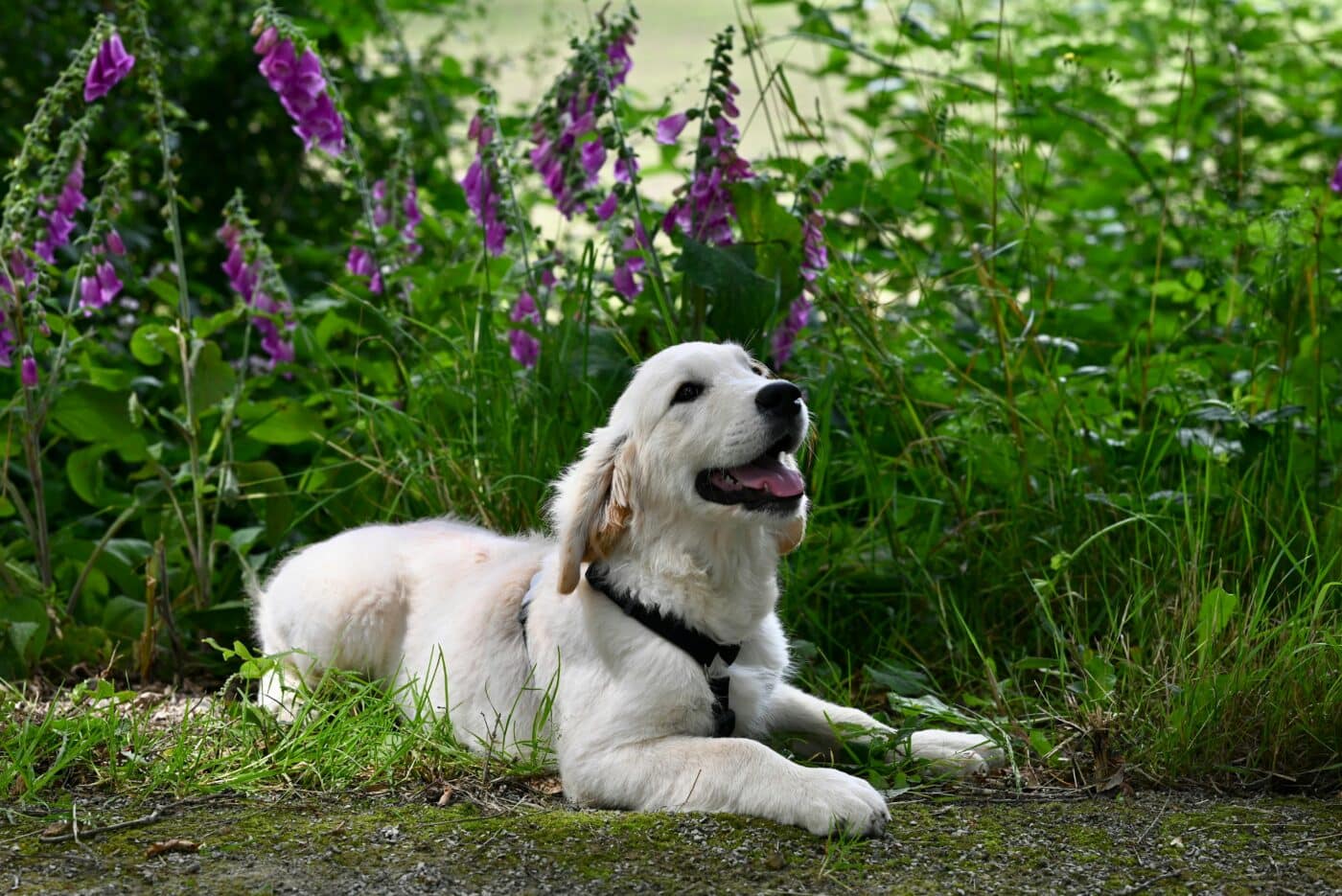 Shutterstock
Shutterstock
One of the crucial frequent explanations for why canine eat grass is rooted of their instincts. Within the wild, canines like wolves and foxes eat plant materials to assist purge their digestive programs of parasites or indigestible matter. Despite the fact that domesticated canine don’t have the identical survival wants, they nonetheless retain many of those instinctual behaviors. Consuming grass and vomiting could also be a means for canine to cleanse their programs, eliminating irritants or international objects of their abdomen. This pure intuition could also be why canine sometimes indulge on this unusual behavior.
Dietary Fiber Deficiency
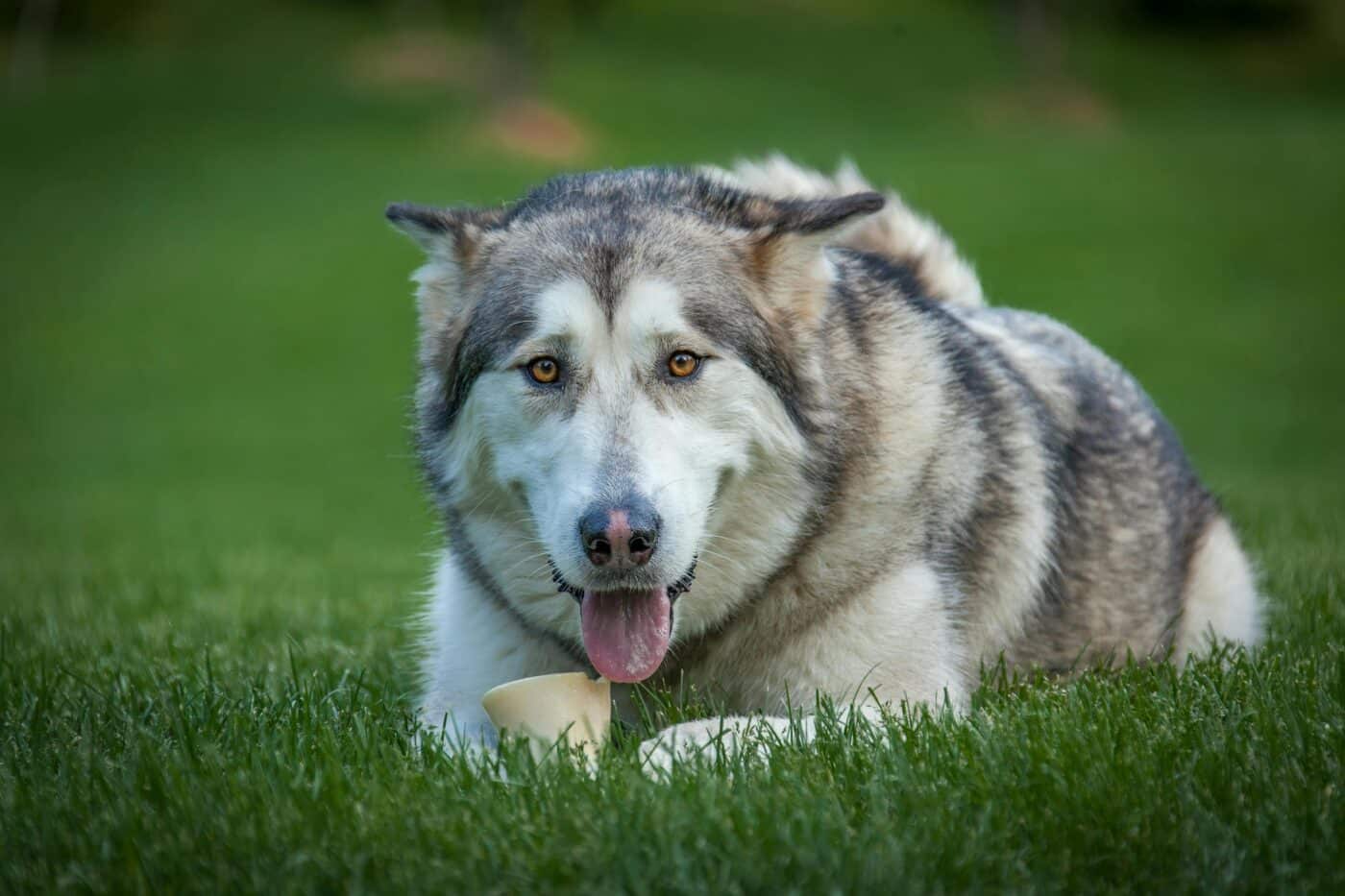 Shutterstock
Shutterstock
One more reason canine eat grass after which vomit may very well be associated to an absence of dietary fiber. Grass accommodates fiber which will assist a canine’s digestive system operate extra easily. If a canine’s weight loss plan is low in fiber, they could search grass to complement their consumption. Nevertheless, since canine aren’t in a position to digest grass effectively, it may irritate their stomachs, resulting in vomiting. Pet house owners who discover their canine regularly consuming grass could wish to think about adjusting their canine’s weight loss plan to incorporate extra fiber-rich meals, doubtlessly lowering the necessity for this habits.
Boredom or Lack of Stimulation
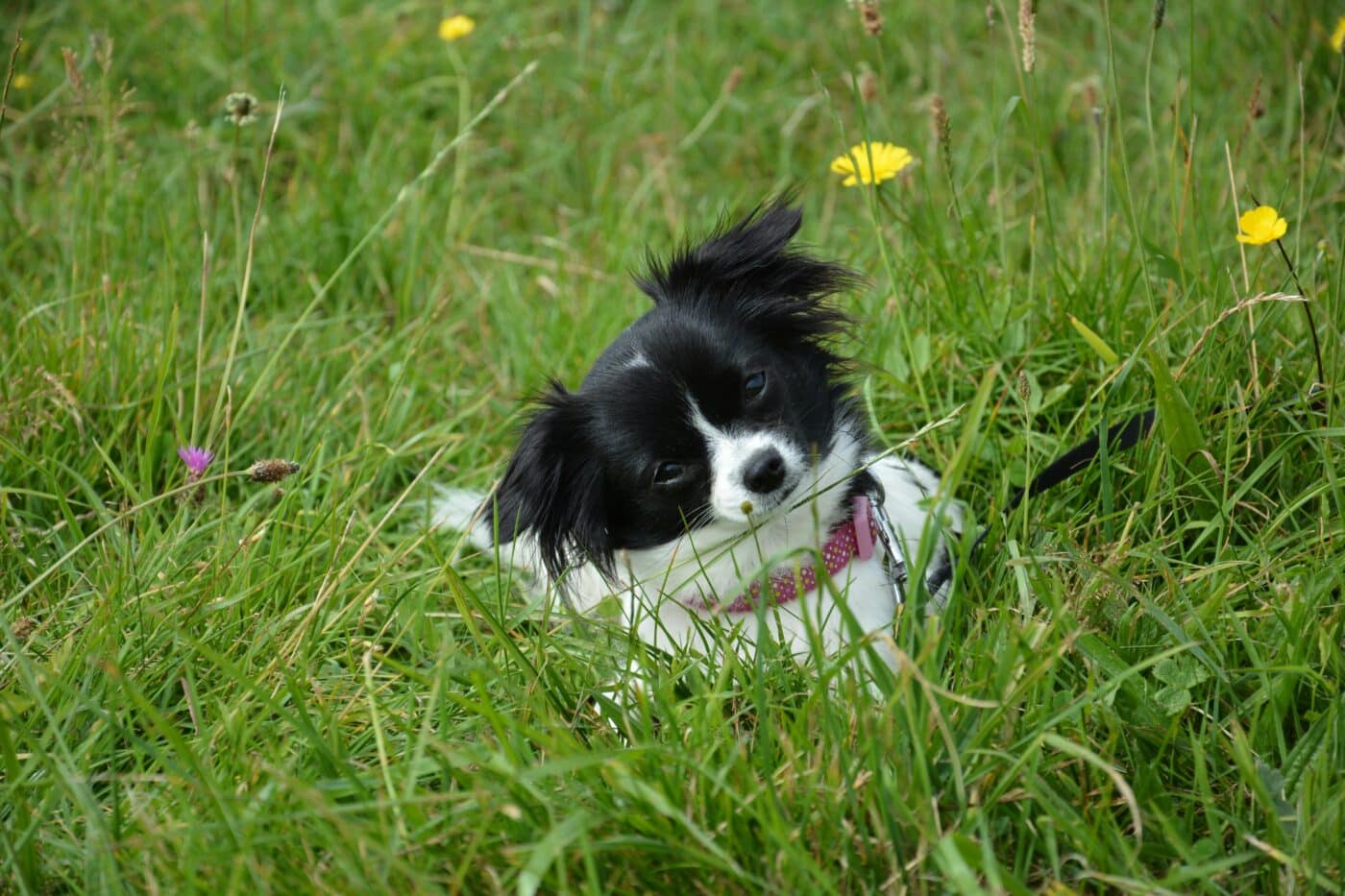 Shutterstock
Shutterstock
For some canine, consuming grass is a technique to go the time or alleviate boredom. Canine, particularly these with excessive vitality ranges, want psychological and bodily stimulation. When a canine is left alone within the yard or isn’t receiving sufficient train or playtime, they could begin consuming grass out of boredom. This habits can result in vomiting because the grass irritates their abdomen lining. Offering interactive toys, extra train, and psychological challenges may also help cut back grass-eating tendencies attributable to boredom or lack of stimulation.
Soothing an Upset Abdomen
 Shutterstock
Shutterstock
Canine can also eat grass to appease an upset abdomen. Some veterinarians imagine that canine instinctively eat grass when feeling nauseous or having indigestion. Consuming grass stimulates vomiting, which may also help relieve nausea or clear the abdomen of irritants. This habits is a type of self-medication, permitting canine to make use of vomiting as a technique to really feel higher. In case your canine appears to eat grass and vomit after they seem unwell, it may very well be their means of attempting to alleviate discomfort.
Evolutionary Remnant
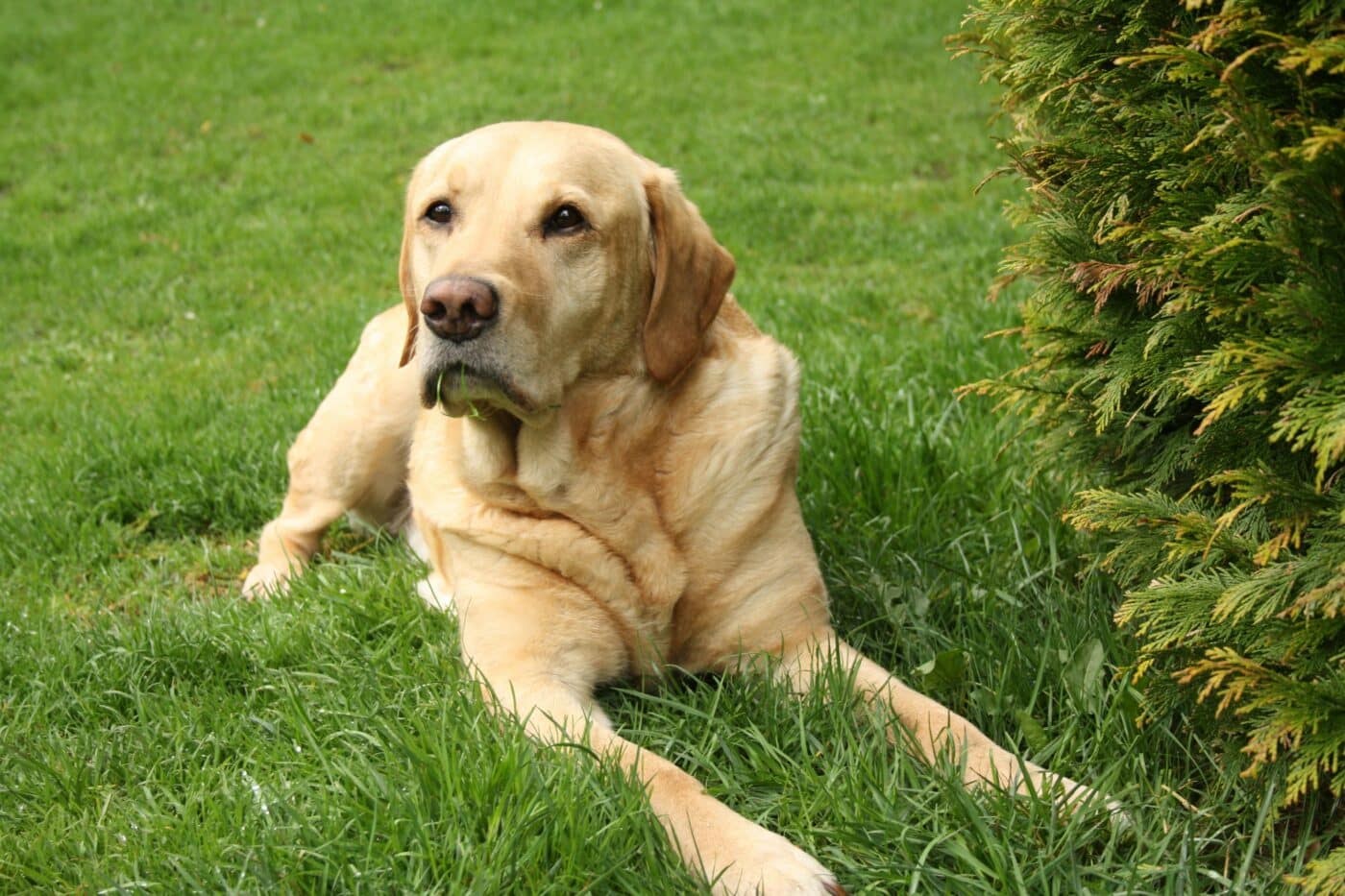 Shutterstock
Shutterstock
Canine are descendants of untamed ancestors like wolves, who consumed your entire our bodies of their prey, together with plant matter discovered within the stomachs of herbivorous animals. Consuming grass could also be an evolutionary remnant of this habits, the place canine are drawn to plant materials despite the fact that their weight loss plan is primarily carnivorous. Though domesticated canine not depend on grass for vitamins, the habits persists, doubtlessly triggering vomiting when their programs can’t deal with the plant fibers as effectively as their ancestors as soon as did.
Consideration-In search of Conduct
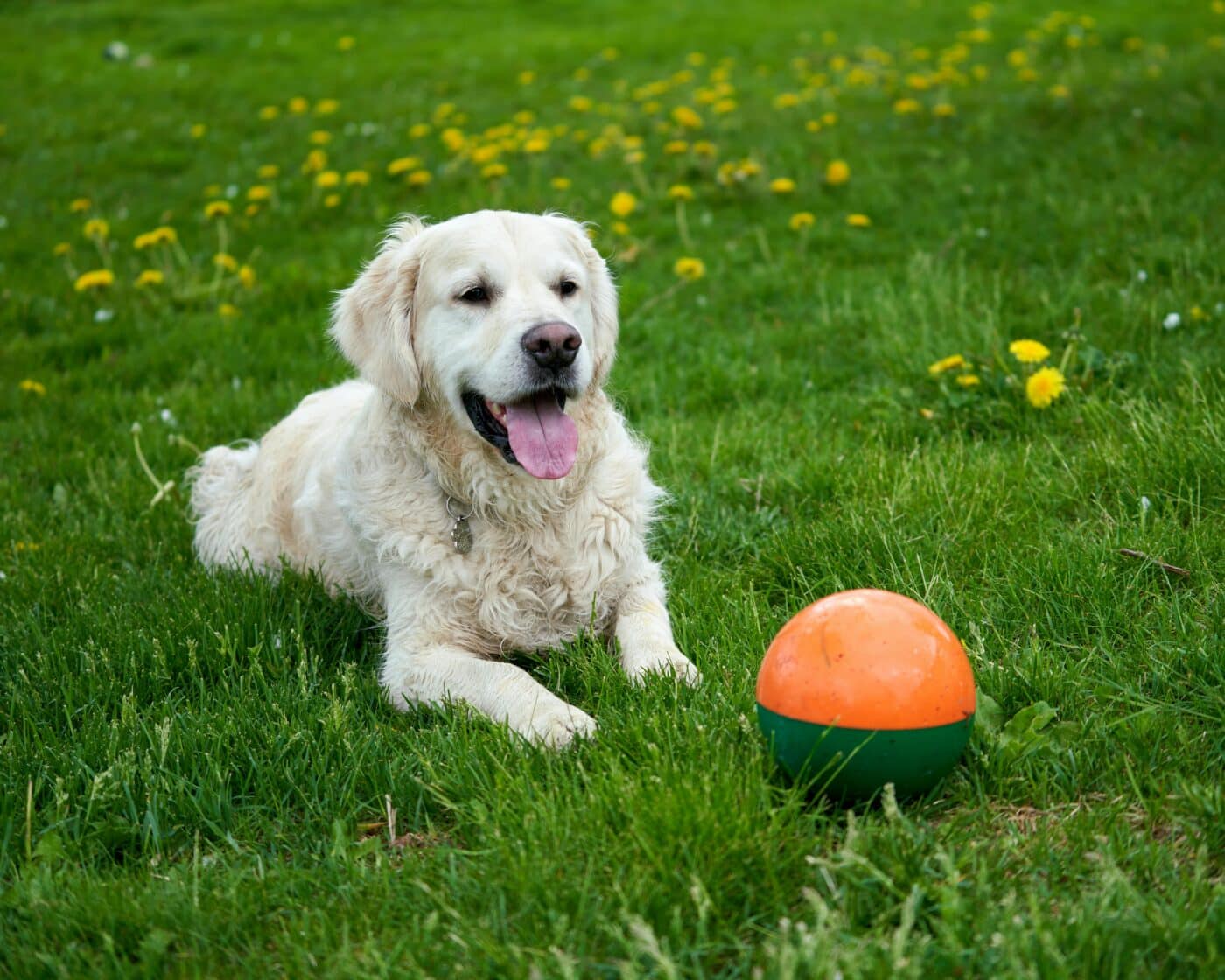 Shutterstock
Shutterstock
Generally, canine eat grass to get consideration from their house owners. If a canine notices that consuming grass ends in further care or concern from their proprietor, it could repeat the habits to achieve consideration. Canine are extremely social animals, and in the event that they really feel uncared for or bored, they could resort to behaviors like grass-eating and vomiting to have interaction with their house owners. Guaranteeing that canine obtain sufficient consideration, play, and interplay may also help cut back the chance of grass-eating as a technique to search consideration.
Nervousness or Stress
 Shutterstock
Shutterstock
Canine, like people, can expertise nervousness and stress, and consuming grass could also be a coping mechanism for them. Aggravating conditions, resembling adjustments in routine, transferring to a brand new residence, or the arrival of a brand new pet, can result in nervousness in canine. In response, some canine could flip to grass-eating to self-soothe. This habits can set off vomiting, particularly if the canine consumes an excessive amount of grass too shortly. Decreasing stressors and offering a secure, calm atmosphere may also help alleviate anxiety-related grass-eating behaviors.
Lack of Vitamins
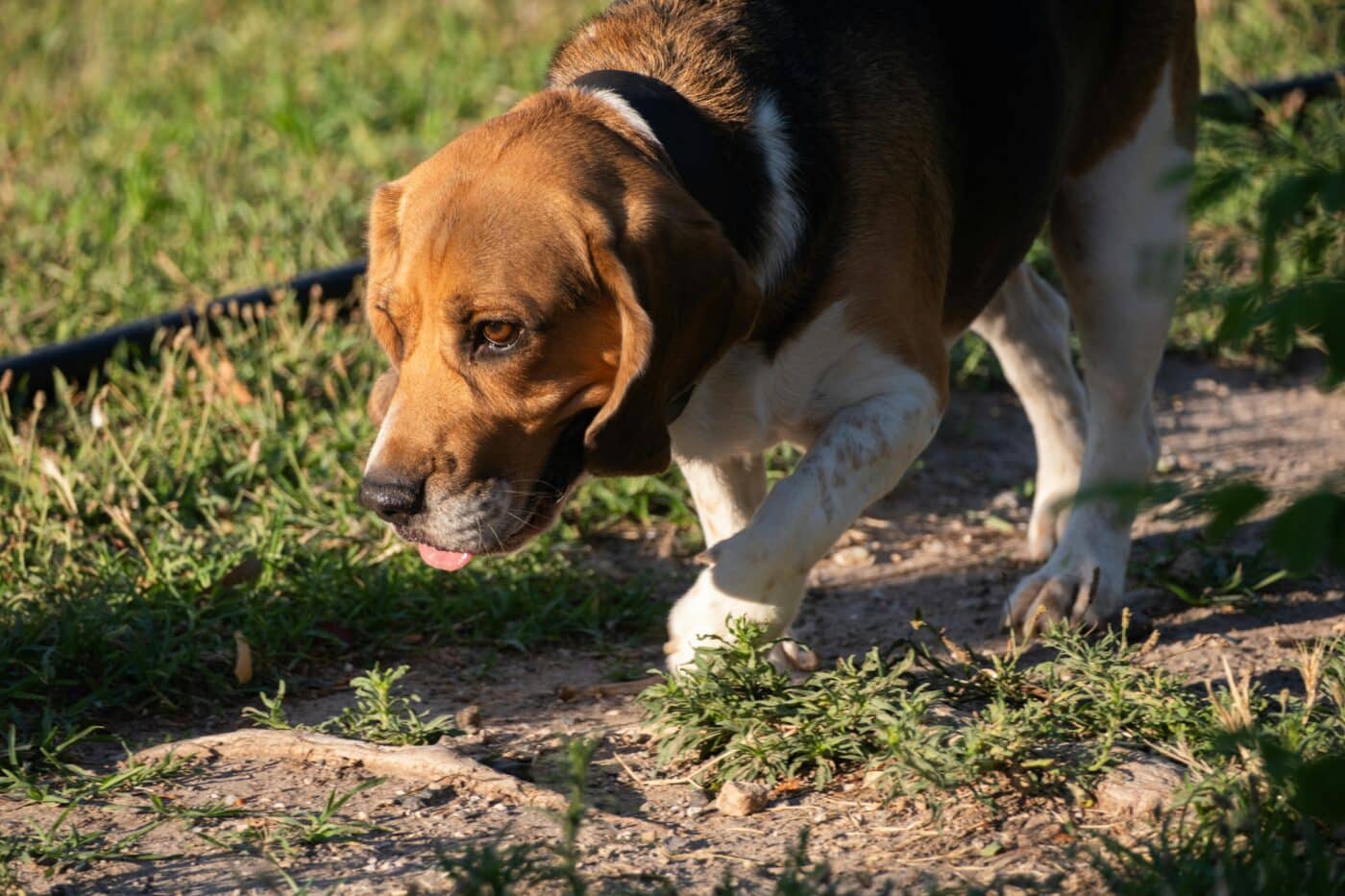 Shutterstock
Shutterstock
In some instances, canine could eat grass as a result of they lack important vitamins. Canine, particularly these on poor-quality or imbalanced diets, could instinctively search grass to fill dietary gaps. Grass accommodates some nutritional vitamins and minerals, though it’s not an alternative to correct canine vitamin. In case your canine often eats grass, it could be value evaluating their weight loss plan to make sure they obtain all the required vitamins. Enhancing the standard of their meals could cut back the urge to eat grass and vomit.
Curious Exploration
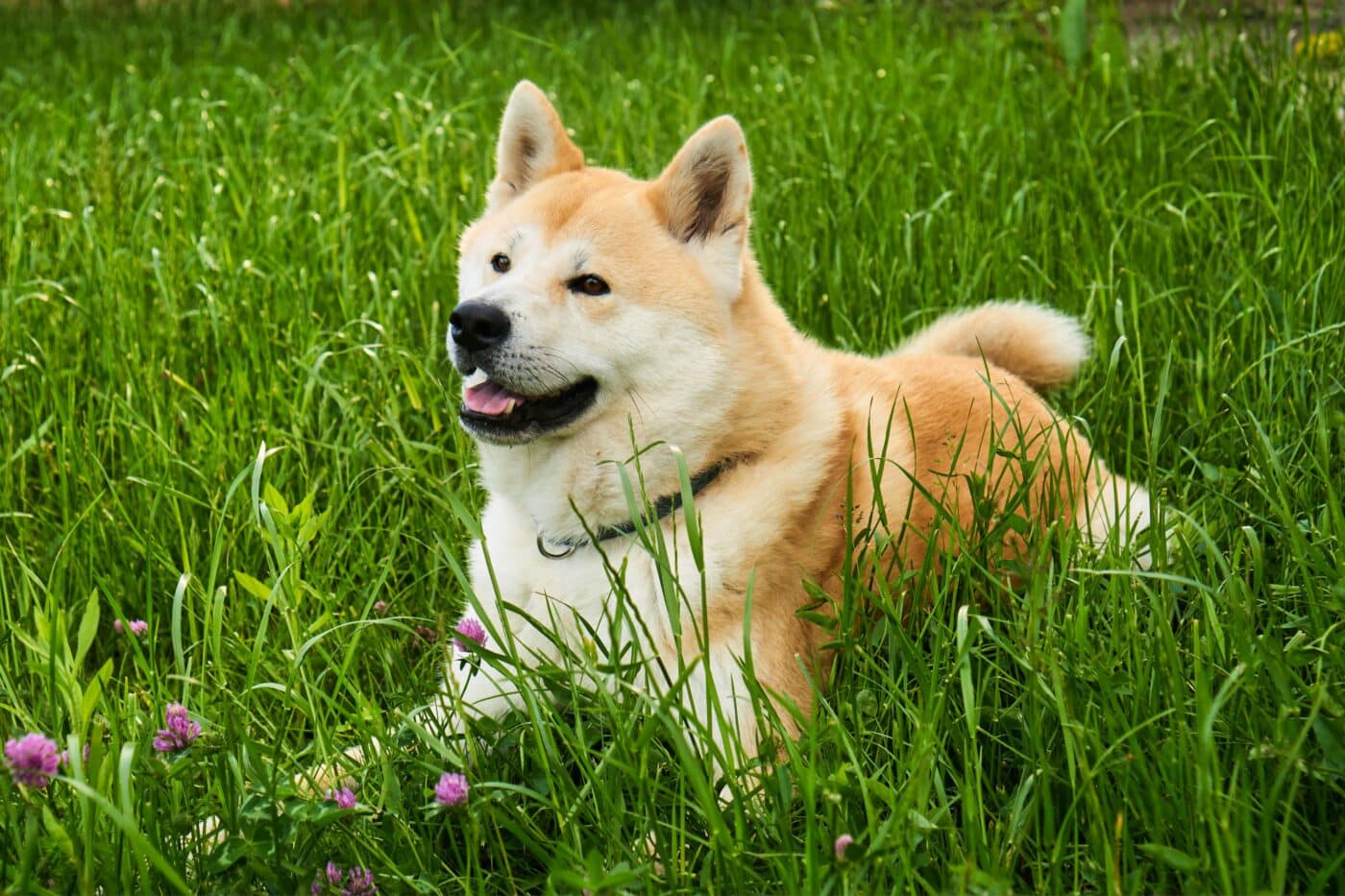 Shutterstock
Shutterstock
Canine are naturally curious creatures, usually exploring the world via their mouths. Consuming grass can merely be a part of their pure exploration, particularly for puppies and younger canine nonetheless studying about their atmosphere. Nevertheless, since grass is indigestible for canine, it may result in gastrointestinal upset and vomiting. Whereas this habits is normally innocent, house owners should monitor their canine’s grass-eating habits to make sure they’re not consuming dangerous substances like pesticides or chemical substances that would pose a well being danger.
Sensory Satisfaction
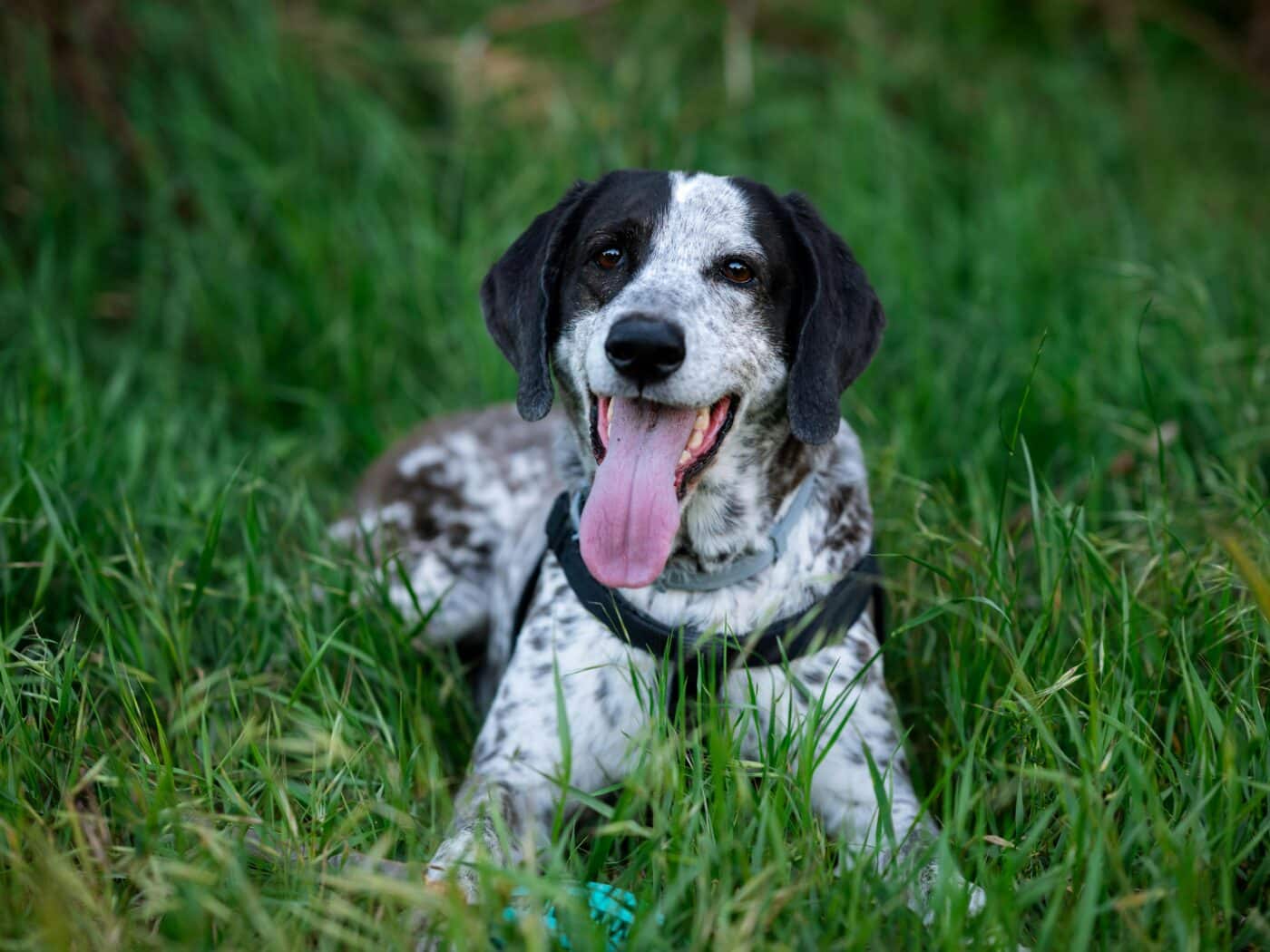 Shutterstock
Shutterstock
Some canine benefit from the sensory expertise of consuming grass—the feel, scent, and style could enchantment to them. This habits may be just like how some canine take pleasure in chewing on sticks or taking part in with sure toys. Nevertheless, since grass is just not simply digestible for canine, it may irritate their abdomen, resulting in vomiting. Canine that benefit from the sensation of consuming grass might have different retailers for sensory stimulation, resembling chew toys or protected, dog-friendly vegetation to nibble on.
Seasonal Conduct
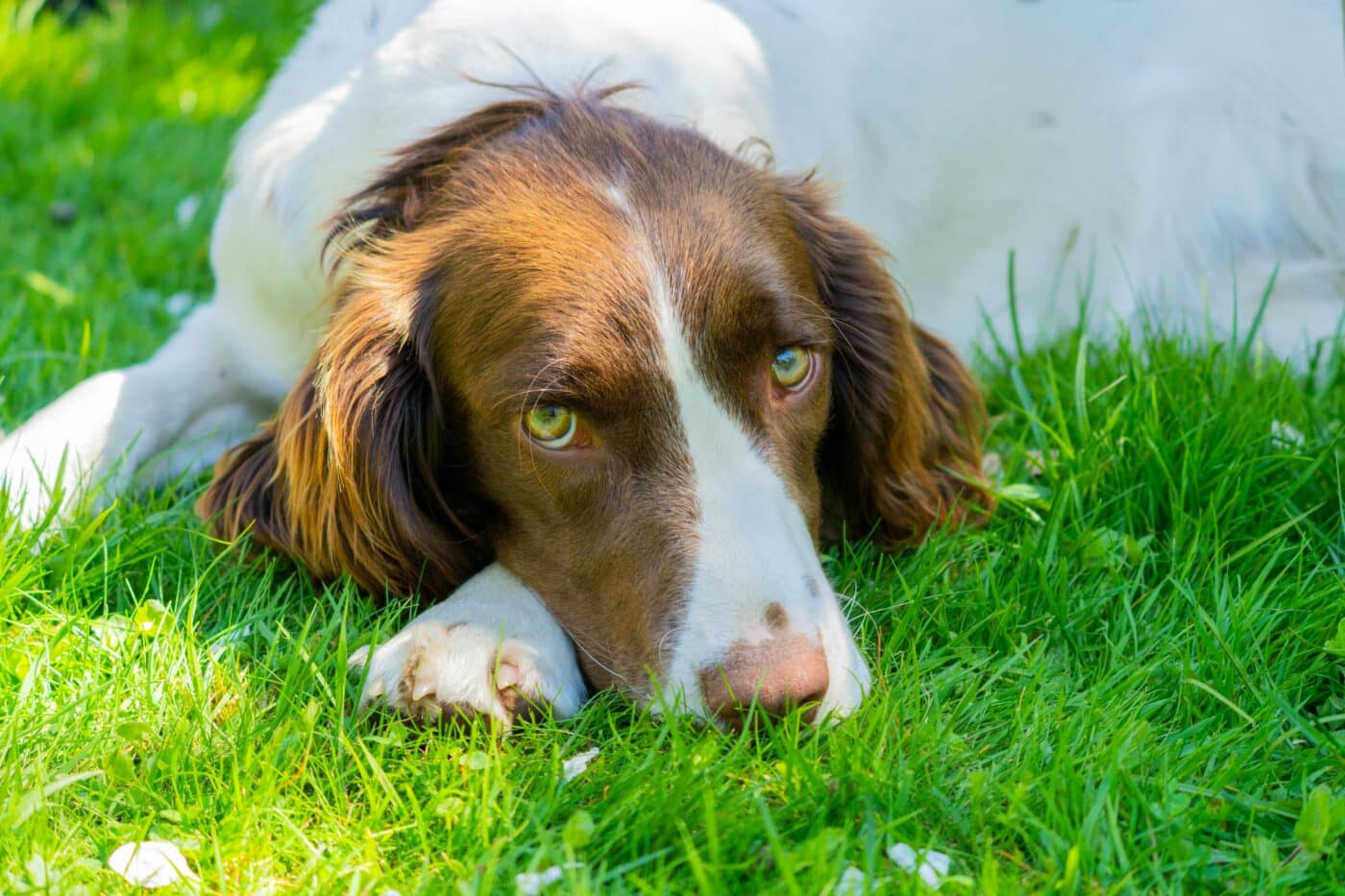 Shutterstock
Shutterstock
Canine could also be extra inclined to eat grass throughout sure occasions of the 12 months. Recent, inexperienced grass that seems within the spring and summer time could also be significantly interesting to canine as a consequence of its texture, moisture content material, and even the change in scent. The seasonal nature of grass-eating habits can typically be tied to adjustments in a canine’s atmosphere or temper, as they could be extra energetic and curious throughout hotter months. Offering options like protected, edible vegetation or redirecting their consideration throughout out of doors play may also help curb seasonal grass-eating habits.
Digestive Irritation
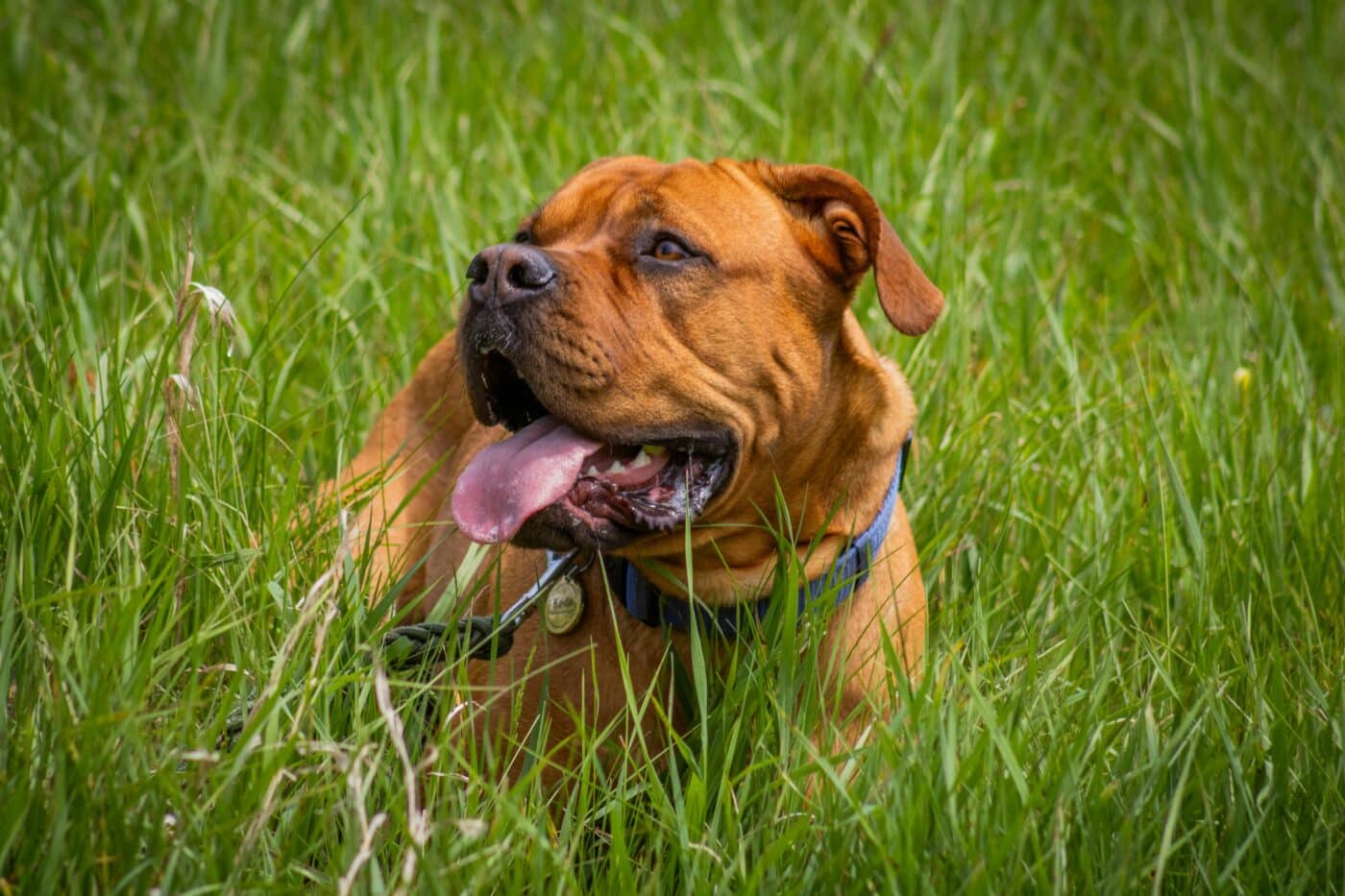 Shutterstock
Shutterstock
In some instances, canine could eat grass just because their digestive system is irritated, and so they instinctively search a technique to alleviate the discomfort. The grass could act as a mechanical irritant, triggering vomiting to clear international objects, parasites, or toxins. This type of self-treatment is a pure response to digestive upset, and whereas the occasional grass-eating episode is normally not a trigger for concern, frequent or extreme vomiting ought to immediate a go to to the veterinarian to rule out any underlying well being points.
Understanding Grass-Consuming and Vomiting in Canine
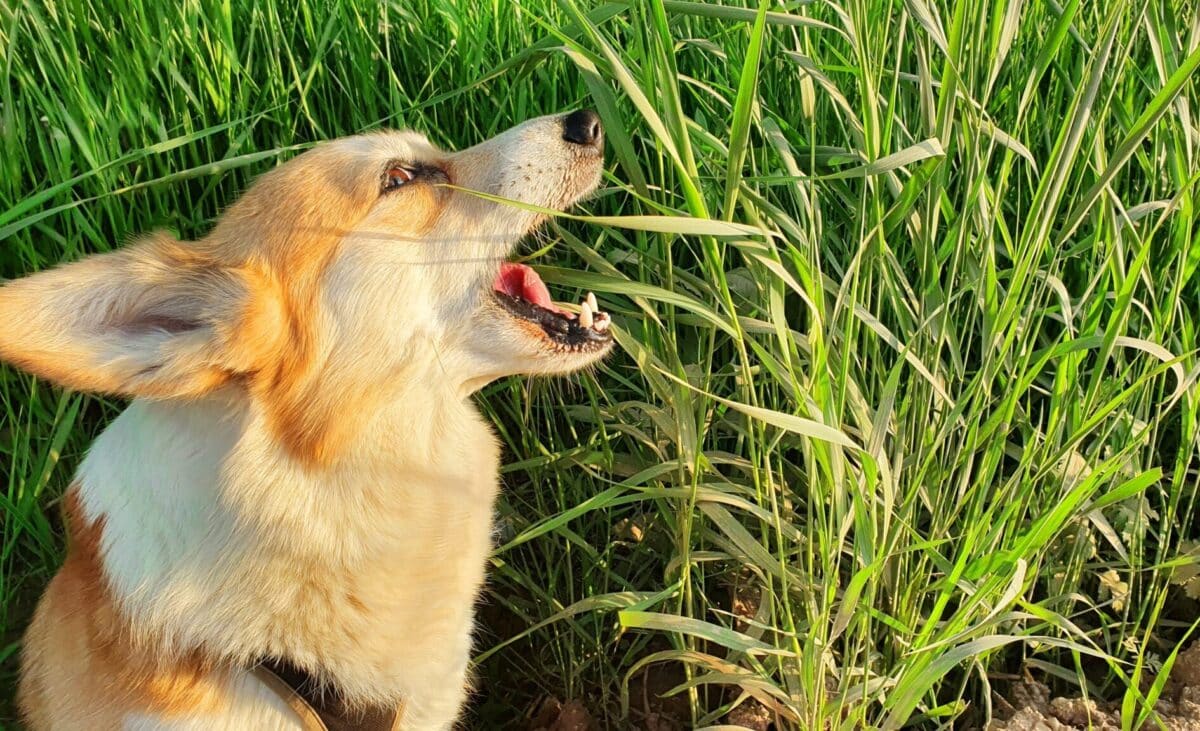 Shutterstock
Shutterstock
Whereas seeing your canine consuming grass after which vomiting may be alarming, it’s usually a pure and instinctive habits with varied explanations. From addressing dietary deficiencies and soothing an upset abdomen to satisfying curiosity and relieving boredom, canine have a number of causes for this frequent habits. Understanding these elements may also help pet house owners handle their canine’s grass-eating habits and meet their pet’s dietary, emotional, and bodily wants. By being attentive to the underlying causes, you’ll be able to higher help your canine’s total well-being and stop potential well being points associated to this habits.






